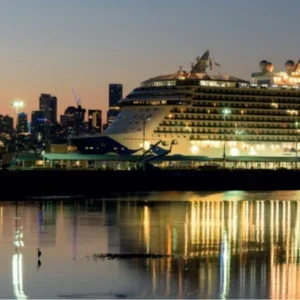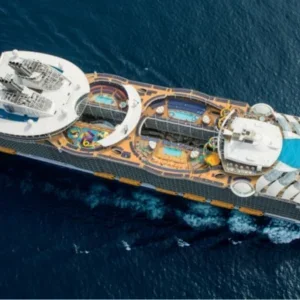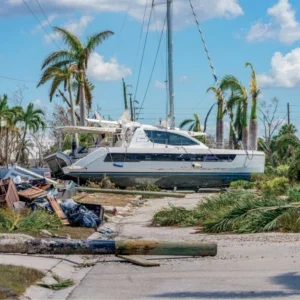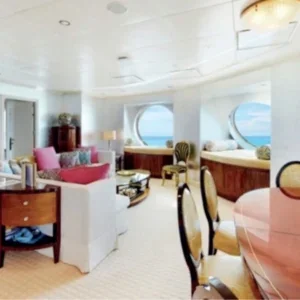In the 38 years since the Cruise Lines International Association (CLIA) was established, our industry has made significant progress in reducing its environmental impact by implementing responsible practices and investing in new technologies. It already employs practices and procedures that are substantially more protective of the environment than are required by regulation. Put simply, CLIA believes that it is our responsibility to protect the environment in which we operate.
We have been at the forefront of wastewater treatment, emissions reduction and the development of innovative technologies to reduce the environmental impact of cruising. CLIA’s ocean-going cruise lines all have senior-level staff responsible for environmental programmes, which include (among many other things) compliance with the relevant international, federal and state environmental regulations. These senior staff members are also responsible for the training, oversight and implementation of other corporate environmental policies and practices onboard.
Our environmental committee, comprised of representatives from the cruise lines, meets regularly with groups such as the US Coast Guard and the Environmental Protection Agency (EPA) to discuss issues related to compliance with environmental regulations. We work with NGOs, universities, regulators and scientists around the globe to continually improve our environmental practices. The cruise line industry also employs engineers and environmental experts who lead programmes to assure compliance with today’s requirements and direct investments to reduce our environmental footprint in the future.
Making a difference
The commitment to employing sound environmental practices has never been stronger. CLIA member cruise lines are continually evaluating new technologies and programmes to enhance their environmental practices. The industry is responding to the expectations of customers, who share a commitment to green practices. We have a wide variety of initiatives that make a difference, including switching to low-energy LED lights, recycling engine-cooling water to heat passenger cabins, disposing of photo-processing chemicals through licensed contractors, and using special window-tinting to keep passageways cooler and reduce the need for air-conditioning.
Passengers onboard our cruise ships are encouraged to be green. Many ships provide guests with opportunities to recycle rubbish, reuse towels and use flow-restrictive shower heads and recyclable clothes hangers. Our environmentally friendly practices go beyond what is obvious to our guests. CLIA ships use state-of-the-art technologies that help consume less fuel, operate more efficiently, reduce air emissions and, in many cases, treat wastewater in ways that exceed those of many land-based facilities and municipalities.
Cruise lines operate within a comprehensive scheme of environmental standards that are set by the International Maritime Organization (IMO). The International Convention for the Prevention of Pollution from Ships (MARPOL) sets strict standards for all commercial vessels to prevent ship-generated pollution. The cruise line industry meets all applicable international, federal and state requirements.
All ships visiting ports, regardless of where they are flagged, must comply with all the relevant federal regulations. For example, according to the US Coast Guard website, they have "the responsibility for ensuring that these ships meet all international conventions and domestic requirements for safety, security and environmental protection".
There are strict standards for how clean the wastewater must be before it is discharged into the sea. In addition to the IMO standards, in early 2009, the EPA issued new and expanded rules under the vessel general permit system that regulate any and all forms of vessel discharge, including those not previously covered by the US Clean Water Act. Our industry has designed and implemented treatment technologies along with the practices and procedures to meet – and in most cases exceed – these requirements. Often, the purified wastewater effluent from a cruise ship is cleaner than that of many municipalities.
Tightening regulations
Air emissions, including sulphur dioxide and nitrogen oxide, are also regulated at the international, federal and state levels. According to MARPOL Annex VI, cruise ships with diesel engines are issued an international air-pollution-prevention certificate. The vessel’s flag state certifies that the ship meets the international emissions limits. Similarly, going beyond what is required by regulators, new technologies being used by cruise lines further reduce sulphur dioxide, carbon dioxide and nitrogen oxide emissions.
Since 1 August 2012, ocean-going vessels operating within 200nm of the mainland US and Canada (except the Aleutian Islands) and Hawaii have been required to use fuel containing no more than 1% sulphur, or comply via an equivalent method. By 1 January 2015, ships within this area will be required to use fuel containing no more than 0.1% sulphur, or comply via an equivalent method.
Additionally, every cruise line must adhere to the IMO’s International Safety Management Code. This requires documentation of environmental practices and a goal of continuous improvement. A number of our member lines have also taken the extra step of being independently certified under ISO 14001, a rigorous international standard for environmental management systems. These programmes require cruise lines to continually identify ways to improve their ships’ environmental performance.
Our industry is working directly with manufacturers to improve engine and generator design, and to test advanced gas scrubbers as a means of removing emissions from exhaust. We have also adopted rounded hulls, special coatings and variable ship speeds to reduce fuel emissions.
Cruise lines are working with ports and local governments to reduce waste and emissions by implementing shoreside electrical power to eliminate engine emissions while in port. Currently, this infrastructure is available at approximately a dozen berths in North America and we strongly support extending it to other ports.
CLIA policies demonstrate the industry’s full commitment to protecting the natural environment in which we operate, and we have a strong record of developing sound and socially responsible environmental best practices and policies for our members to implement.






